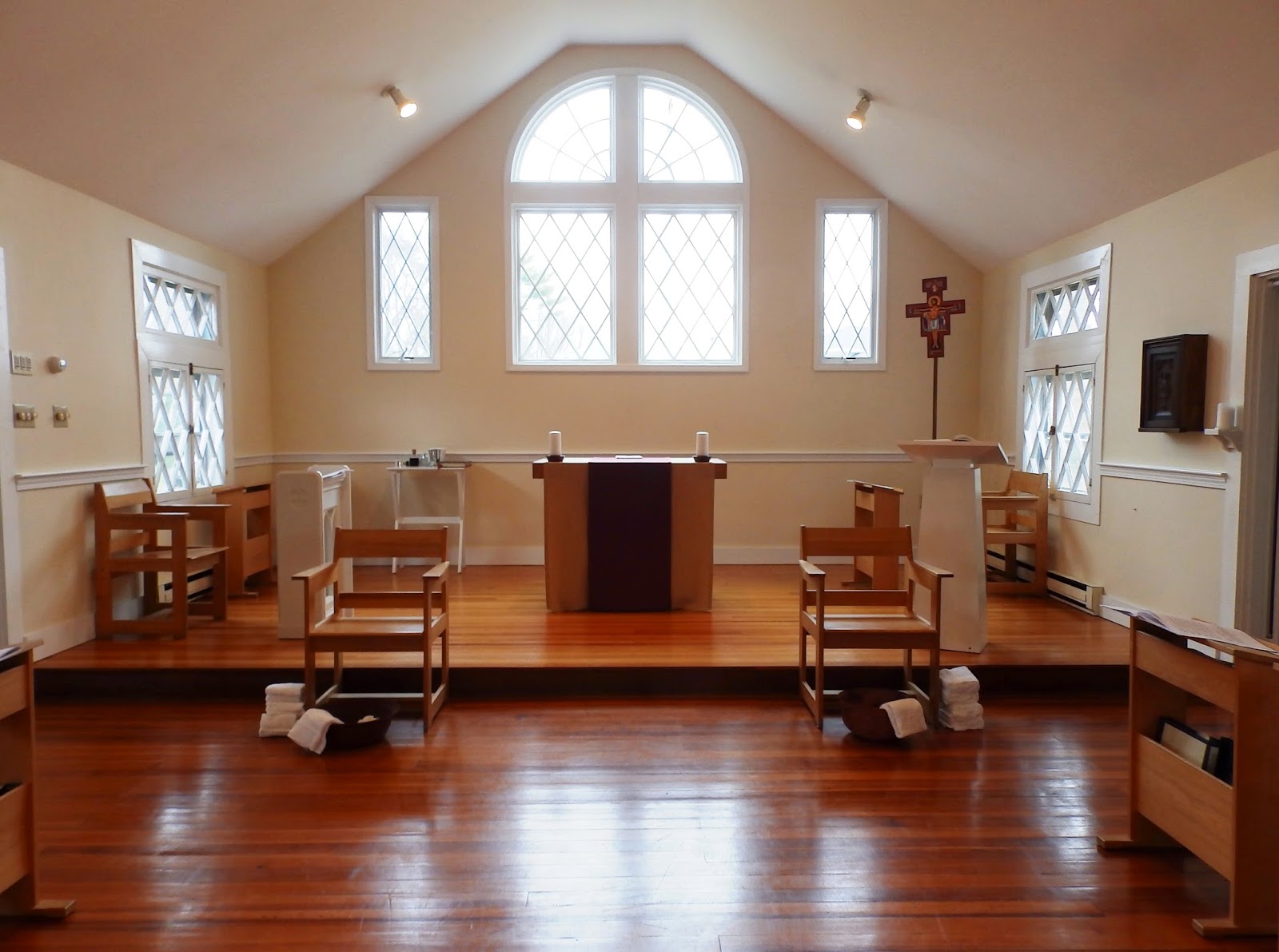Holy Saturday 2015
St. Margaret’s Chapel, Duxbury
Holy Saturday. Jesus’ body lies in the sealed tomb. Mary and the women wait with the disciples. It’s the sabbath; nothing can be done.
Nothing can be done. That is an extraordinarily difficult place to be.
Imagine them, gathered in small groups perhaps. Traumatized, grief-stricken, uncertain, angry, afraid. Those few who had summoned up the courage to go to Golgotha likely cannot shake the images burned into them during that time. Those who hid – that is, most of them - are guilt-ridden. And there is no escape, no distraction. It’s the sabbath. Time to be still. Time to wait and pray.
Some of them are planning what to do next. The women, at least, have something they can DO in the morning, before dawn. They can go to the tomb and anoint the body, one last gesture of love for one they loved so dearly – and who loved them even more. Some of the men are gathered, talking in low voices behind closed doors about what to do next. The unthinkable has happened. Their world has been shattered, their lives may be in danger, and they have no earthly idea what will happen in the days to come. They don’t understand it – and how could they?
Everything is up in the air. Nothing is certain.
And nothing can be done. Oh, little things... Somehow the women have gotten ahold of the ointments for burial. The men can curse at Judas, at the Temple authorities, at Pilate and the Romans. But Jesus is dead, and there is no changing that. Perhaps they remember the passage from Job:
For there is hope for a tree,
if it is cut down, that it will sprout again,
and that its shoots will not cease…
But mortals die, and are laid low;
humans expire, and where are they?
(Job 14:7, 10)
Two things are certain: death and taxes – and the Romans have both of those well in hand.
So there they sit, face to face with their grief and confusion. They know Jesus is not coming back, but slowly the memories of other times, still fresh, surface among those of yesterday. “Do you remember?” “Do you remember?” And, in this, a thread of courage and peace weaves its way through the quiet tumult of their day. They still don’t understand, their grief is still deep, and they still can do nothing. But slowly they are becoming strong enough to stay there. “Do you remember?”
Holy Saturday is a sabbath day for us, too - a day of repose, a day when we are asked to be still. To stay. To be fully present. It’s uncomfortable to be in a place where we can do nothing. Being, just being, rather than doing, goes against all our cultural training. Most of us have had no experience of true weekly sabbath trained into us from childhood as the disciples would have had.
We, of course, know the end of this story, and it’s a temptation to jump straight to Easter. But Holy Saturday has its own gift. When we stay with the disciples in their grief and uncertainty about the future, in their not-knowing, we begin to know more deeply the power of God to hold us. We begin to grow in trust. When we stay with the disciples, contemplating the sealed tomb, we receive the grace of courage to be – to be present instead of running away – to accept what is, even death itself. None of us knows what the future will bring any more than the disciples did that Saturday. But we are here, now, as we are, as it all is.
As the disciples must have done, we can say, “Do you remember?” We, too, have had our experiences of God – and we can share in the remembering of the community when our own memories and experience fall short. Together, even at times when we know little and can do nothing, we stay. We remember that God is with us, even when we don’t know where or how. And with the disciples that sabbath day, we can rest in that.
We who are here today have been given the gift of knowing that Holy Saturday isn’t the end of the story. And, as we know, that changes everything. Everything. But let’s not jump ahead just yet. Let’s take today to wait with Mary and the other disciples. Whatever the time brings, together we can stay with it.


.JPG)
.JPG)
.JPG)


.JPG)
.JPG)
.JPG)
.JPG)



















.JPG)
.JPG)








.jpg)






